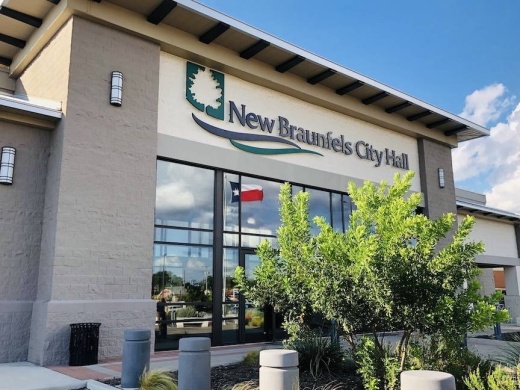During a presentation during the July 25 council meeting, council members heard a presentation about the ordinance that has been recommended by the New Braunfels Animal Services Advisory Board.
New Braunfels officials began considering potential regulations in October 2021 after City Council members recommended the board should discuss options for an ordinance to address commercial animal sales.
“Currently, the city of New Braunfels does not have restrictions on where retail pet stores can obtain the pets they sell for the public,” said Christopher Looney, planning and development services director for the city. “Last fall, the public spoke in several City Council meetings voicing their concerns about a new retail pet store and from where they suspected it was obtaining their pets.”
City staff reviewed similar ordinances in other cities in Texas when drafting the options, Looney said, including an ordinance passed by San Antonio in October 2020 that banned the commercial sale of pets within city limits.
The newly recommended ordinance in New Braunfels prohibits retail pet shops from the sale, lease or transfer of a dog or cat unless the animal was obtained by the shop from an animal shelter or animal welfare organization, according to city documents.
Additionally, the board recommended amending the definition of “animal welfare organization” in the existing code of ordinances.
Previously, an animal welfare organization was defined as “any not-for-profit group with 501(c)(3) status whose primary mission includes animal welfare,” according to city documents.
The recommended amendment adds the stipulation that such organizations do not include an entity that breeds animals or one that purchases pets from other breeders.
As with the ordinance in San Antonio, private breeders who sell directly to the public would not be affected by the ordinance.
A one-year grace period for existing pet shops to come into compliance has also been included in the recommended ordinance, Looney said.
The grace period would begin when the ordinance is adopted if the proposal is approved by City Council.
Following the board’s presentation on July 25, council members agreed to hold a first reading of the ordinance at a future meeting, at which time the council would vote on the ordinance. A second reading and vote would be required to pass the measure.
While council members voiced a unified desire to learn more about the potential implications of such an ordinance, some members expressed concern about the city becoming involved in matters of private business.
“I will always be a free-market guy, and I will always say that customers can vote with their wallet,” said Jason Hurta, City Council representative of District 5.
Council Member James Blakey and Mayor Rusty Brockman also said the council should be cautious about intervening in the operations of local businesses and would rather let consumer demand and preference determine the success of pet stores.
“We've got to be careful. ... As a government, I don't like getting involved in small business. I want the market to yield what it yields,” Blakey said. “But this is important to the community members here and those that are listening. That's why we're pursuing this and getting more information.”
Following the discussion, Looney said city staff would gather additional information and data about existing pet stores in the area, local demand for pets and how similar ordinances around the state have been enforced.
A date for the first reading and council vote have not been set.





